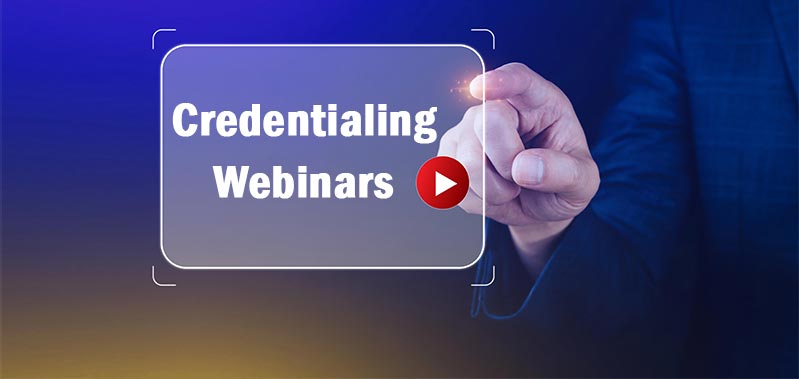
Credentialing Webinars
Provider credentialing is essential for ensuring that healthcare providers meet necessary standards. Here, we have elaborated on different elements of credentialing that will help healthcare professionals navigate several challenges related to credentialing.
Hospital DEI: Bias in Credentialing
DEI is crucial in hospitals yet overlooked in medical staff documents, causing bias. Biased policies lead to problems like bad faith credentialing, damaging morale, reputations, and patient care. Prejudiced peer reviews can result in legal issues. To comply with laws and accreditation standards, hospitals must scrutinize and correct biases in their bylaws and policies. Fairness in evaluation is vital to maintain trust and prevent liability risks, enhancing healthcare standards through unbiased credentialing and peer review processes.
Credentialing 101
Provider credentialing is vital for maintaining quality healthcare standards. This process involves meticulous steps, starting with collecting and validating essential documents like CVs and certifications. Up-to-date information in systems such as CAQH, PECOS, and NPPES is crucial for smooth verification by payers. Effective tracking tools aid in managing document verification and application status. Adhering to payer-specific submission requirements ensures timely processing. Post-approval tasks include linking providers to payers and ensuring document accuracy. With a detailed guide, healthcare organizations can optimize their credentialing processes, ensuring compliance and efficiency in delivering quality care.
Provider Enrollment Maintenance: Essential Updates
Enhancing your credentialing skills is vital for maintaining accurate provider enrollments and meeting payer requirements. This involves systematic steps, including updating provider files with current documents like CVs and certifications. Regular updates to CAQH, PECOS, and NPPES profiles ensure accurate information for payer credentialing. Streamlined tracking tools help keep track of payer enrollments and revalidations, making it easier to stay up-to-date. Knowing each payer's specific requirements speeds up the process and reduces mistakes. Using customizable forms further improves your credentialing procedures, ensuring they meet standards and run smoothly. This proactive approach doesn't just help you comply with regulations; it also provides your organization maintains top-notch care standards.
Conclusively, mastering credentialing is vital for upholding healthcare standards. By addressing bias, understanding the credentialing process, and maintaining provider enrollments efficiently, healthcare professionals can navigate challenges effectively. This proactive approach ensures compliance, enhances patient care, and upholds organizational excellence in healthcare delivery.




